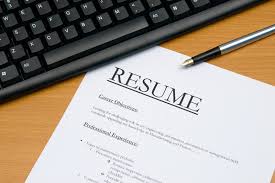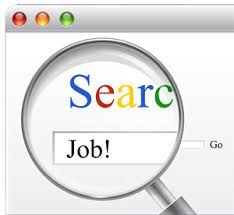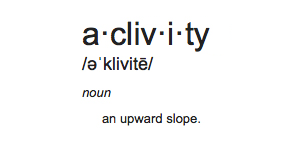Benefits of Hiring an Intern!

Have you considered the benefits of hiring an Intern? Real-world experience for a student is invaluable to their future and incredibly beneficial to your company. An internship can be part-time or full-time long or short term any time during the year. Think flexibility and out-of-the-box! The traditional thought is that an internship is mostly beneficial to the student. However, the benefits to your company are equally important:
- Gain a new perspective on organizational issues – Interns aren’t stuck in the “this is the way we’ve always done it” mentality. They can bring fresh, new ideas to the company. Interns are good at questioning processes and can often see a different way of doing things that a manager might not.
- Enjoy the ease of use with technology – Social media, computer programs, smart phones, and iPads – these are a piece of cake for young professionals. Even if you are a young entrepreneur, you can always use a hand from a fellow Gen Y tech-savvy professional who is up to date on the newest tech trends.
- It’s a trial period that could lead to something more – It is an opportunity to screen and work with potential entry-level employees prior to making a full-time commitment. Reduce turnover and training among entry-level employees who were former interns. If this young professional becomes part of your team they have learned on the job and saves you on hiring and training.
- Accomplish hard to accomplish projects and tasks – There are always projects or tasks that you need help with or are struggling to complete – why not get a helping hand that is eager to step in and are used to help meet deadlines.
- They are productive, courteous and trying to impress – It provides convenience and flexibility of hiring additional staff during peak seasons
- Gain brand advocates and free advertising – The best marketing tool is social media and the brand awareness an intern can share online will help expand your company’s online presence.
- Financially favorable for the hiring organization & develops your internal team – A chance for junior-level managers within your organization to gain supervisory experience. Good “word-of-mouth” in the recruiting marketplace and an increased pool of qualified candidates to meet future recruiting needs.
Hiring an intern is a great opportunity for your team and future graduate.
We would like to help you in this process as we stay connected to the Colorado Universities and their students.
Aclivity is teaming up with a few of the major universities to help facilitate internship placement, so free to reach out to either of us so we can help facilitate the process!
Angela Roberts
Angela.Roberts@Aclivity.com
Shenia Ivey
Shenia.Ivey@Aclivity.com
Here are a few criteria I forgot to mention below. Additionally:
- No third party recruiters
- No multilevel marketing schemes
- No investment required by the student and no penalties for withdrawing
- No commission only positions
Metropolitan State – Michelle Brown successlinks21@aol.com
University of Colorado Denver
Internship postings are currently housed on a separate system from the job board for full- and part-time jobs. To register an internship with the Experiential Learning Center, follow the instructions below:
- Go to: https://www.myinterfase.com/internlink/employer/
- If you are a new user, please click on the “Click here to register” link below to set up your online account with the Experiential Learning Center.
- Type in the first few letters of your organization’s name. If your organization is already in the system, click the appropriate box in the results list and then click “Continue.” If your organization is not in the system, complete the registration information and click on “Register.”
- Once you are registered, you can post internships by going to your dashboard, clicking on “My Postings” and then selecting “New Internship” from the drop-down menu.
- Input all of the information required to register the internship and then click on “Save” to agree to the Terms & Agreements and register the new internship.
Internlink has a “Pending” bin where internships are stored until a qualified professional staff member approves the posting. If you need further assistance, please contact the Experiential Learning Center Front Desk at 303-556-6656.
University of Northern Colorado
Posting jobs and internships with UNC entails a pretty straightforward process of 1) registering your company on our site, along with yourself as a contact; and 2) posting your job and/or internship opportunities. Here’s what to do to register:
-Go to https://www.myinterfase.com/unc/employer and click “Click here to register!”
-On the following page, click “Can’t find your organization?”
-On the following page, enter all required information about Aclivity, provide your contact information where required, and click “register” when complete.
Once you’ve registered, you can go ahead and post jobs. Here’s how to do that:
- Return to the address I provided above, and log in using the user name and password you selected during registration.
- On the following page, hover your cursor over the “My Jobs” tab, and select “New Job” from the drop-down menu.
- The following page is a form, essentially, in which you enter information about the job or internship. Click “save” when you’re finished.
- UNC will not allow 1099 positions.
Please note UNC has an activation and approval process on our end, so the jobs won’t automatically go live when you’ve posted them.
Christopher Cobb
Associate Director, Employer Relations Career Services
christopher.cobb@unco.edu
Direct Line: 970-351-2140
Main Office: 970-351-2127
Colorado State University
Follow the instructions below to register:
- Go to: https://www.myinterfase.com/cob_colostate/employer/
- Click on the link underneath the employer sign-in fields Click here to register!
- A new page will appear asking for your company information. Start by just typing the first few letters of your company name. If we do not have your company in our system, you will need to click on the button Can’t Find your Organization?
- Complete all necessary fields on the form that appears.
- After registering, you will be taken to your homepage on the site.
- Go to the My Jobs drop down menu at the top of the page and select New Job
- You will be taken to another form similar to the one you just filled out. Enter all applicable information.
- We typically post jobs for one month, but for no longer than three months.
- There is an option Allow E-mail Referrals Through this System to which you can select “Yes” or “No.” By selecting “Yes” you allow students to upload their resumes/cover letters/references/etc. to the CareerRAM system in response to your posting. You will receive a system-generated e-mail stating that you have received a referral to this posting. Simply login to your account to retrieve their information
- After saving the information you just entered, your posting will go into “Pending” status. My office will activate your posting within 1-3 days.
- Once this is one and your position is approved, we will be able to e-mail it out to our College of Business students and Alumni.
If you have any questions feel free to contact:
Susan Schell
Sue.Schell@business.colostate.edu
Director of the Career Management Center
Colorado State University College of Business
970-491-4834 (office)
University of Colorado Boulder
Follow the instructions below to register:
- Go to: https://www.myinterfase.com/cuboulder/employer/
- If you are a new user, click on the Click here to register!
- A new page will appear asking for your company information. Start by just typing the first few letters of your company name. If we do not have your company in our system, you will need to click on the button Can’t Find your Organization?
- Complete all necessary fields on the form and don’t forget to read the Policy Agreement at the bottom and agree to the terms.
Follow the instructions below to post a job or internship:
- Go to the My Jobs drop down menu at the top of the page and select New Position
- Enter all applicable information for your current opening, please be as detailed as possible
- Jobs will be posted for a maximum of 45 days. You can also “Copy” previous jobs to reopen them again if you have not gotten the position filled yet.
- After saving the information you just entered, your posting will go into “Pending” status. Positions are generally approved within 24-48 hours.
Please visit the CAREER BUFFS EMPLOYER GUIDE for any job posting questions or contact:
Amanda Hansen
Amanda.Hansen@colorado.edu
Assistant Director, Employer Relations
Leeds School of Business – University of Colorado Boulder
303.492.9033



















